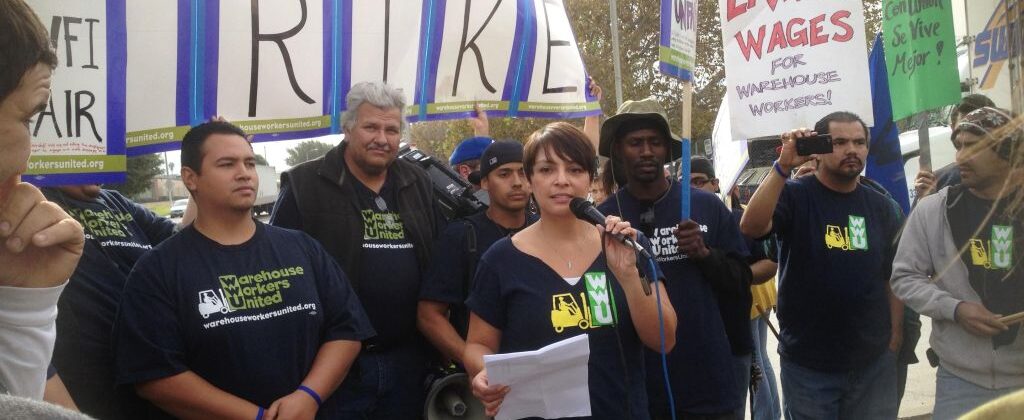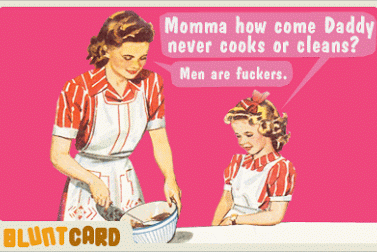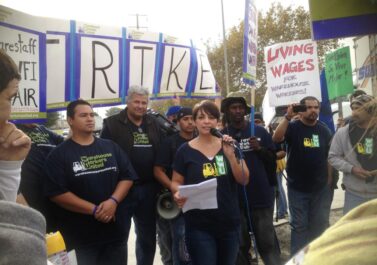/// Interview Guideline
The interview guideline has three sections:
1) Labour Process and Workplace;
2) Wage;
3) ‘Representation’/Politics.
/// Overview of the three sections of the interview guideline
1) Labour Process and Workplace
What do we want to discuss:
* What is the scope for collective workers’ power on the shop-floor and within/beyond the labour process?
* How does the labour process mystify the relation between workers and capital?
* How are the relations between workers shaped through the labour process?
* How does the situation at work relate to the reproductive sphere and what spaces exist for collectivity?
2) Wage
What do we want to discuss:
* Is the wage (in relation to work intensity and living costs) a collective point of conflict or could it become a point of conflict?
* How does the wage serve to divide workers?
* Do we over-estimate the role of the wage and are, e.g. the general working conditions of more significance for people? What do we mean by working conditions: working/shift-times? monotony? stress? arbitrariness? physical and mental strain?
” Is the basic ‘subsistence’ of workers more dependent on the indirect wage (working tax credit, child benefits etc.) and on wages of other family members?
* How does management try to individualise the wage question and do they succeed? (individual company contracts, individual bonus-systems) How could this be turned around into a collective question again?
3) Representation and Politics
What do we want to discuss:
* Are there any tendencies to overcome set boundaries between us and between workers of different companies and sectors?
* Do we see the emergence of new forms of representation? What role does formal and informal representation play in the mediation and integration of conflicts?
* What are the limits of conflict management on the shop-floor? What could be our role regarding self-organisation which goes beyond representation?
/// Guiding Questions and Concretising Questions
The main guiding questions are in bold, they should be asked in all interviews. We should try to formulate them in a way which invites people to talk. The subsequent questions hone in on specific aspects of this area.
In the square brackets […] after each guiding question we tried to formulate why we ask the question and what we want to understand together with the people we interview.
/// Questionaire
1) Labour Process and Workplace
WHAT WAS YOUR FIRST IMPRESSION OF THE COMPANY / THE WORKPLACE?
* What did you notice during the first days at work?
* Noise, smells, buildings, work-mates, atmosphere…
* Was there anything peculiar?
FOR HOW LONG HAVE YOU WORKED IN THIS JOB AND WHY DID YOU START HERE?
[What is the personal relation towards the job?]
* How did you find the job?
* Why were you hired?
* Did they want references etc.?
* Do you have a permanent or temporary contract? Did formal or informal qualifications play a role when hired?
* What kind of information did you have about the company/work-place and the working conditions (wages, working-times, …) beforehand?
* Where did you work before?
* Do you have a formal qualification?
HOW WERE YOU INTRODUCED TO THE JOB/COMPANY?
[How are newly hired people treated? What kind of ‘stories’ are told, what kind of behaviour is recommended by other workers? What was the impression of the relation between colleagues and lower management/foremen? First impressions of divisions between workers]
* Is there a training period or do people have to start right away?
* Who did the training, work-mates or seniors?
* What were you told about how to do the job, did work-mates give you any advice?
WHAT DO YOU ACTUALLY DO ON THE JOB? WHAT DOES YOUR WORK LOOK LIKE?
[How does the cooperation/collaboration within the labour process look like? contradiction between labour process and process of valorisation]
* In which way does your work depend on work steps others have performed before you? Who, in turn, does depend on your work?
* How do you know what you actually have to do as part of your job task?
* What kind of machines or tools (computer, scanner, …) do you use?
* How is the work formally organised within your department or company (individual work, team work? how is the team composed? department management)?
* Are certain tasks allocated to certain ‘groups of people’? (e.g. men drive forklifts, women do packaging)?
* Have work organisation and/or work technology changed in recent times? How was this done and what impact did it have?
WHAT HAPPENS IN CASE OF FAULTS OR DEFECTS (INTERRUPTION OF WORK FLOW)?
[What happens once the labour process stops? Does the cooperation become visible? Are people disciplined? Who solves the problems?]
* What causes work to stop?
* Do you inform senior staff of defects/faults? Do you have to? Do senior staff notice defects/faults automatically?
* Who solves technical problems? What is the relationship to these workers?
* Is there a quality control in place? Who controls the quality?
* Is there an ‘improvement scheme’, where workers are invited to make improvement suggestions?
* Are there disciplinary measures or warnings in case of faults/mistakes?
HOW IS THE WORK TARGET DEFINED?
* How do you know what you have to achieve, how much you have to work?
* Is there a lot of pressure to meet the target? How does that pressure manifest itself?
* How is the target/performance fixed? Or is there a ‘competition’ between single workers (is that encouraged in any way)?
* Can you ‘pretend’ to be a good worker (fiddle numbers etc.)? Do you stick to the rules and targets? If not why and what do you do instead?
* Were or are there any changes in terms of work pace or work process?
WHAT ARE YOUR RELATIONSHIPS LIKE TO OTHER WORKERS? HOW DO PEOPLE GET ON?
[What kind of lines of division or tension exist? How does the informal cooperation work amongst workers?]
* How is the workforce composed (men/women, old/young, migrants/locals)? Are there ‘groups’ (people who hang out together) in the company and what does make them a group?
* Do other people help you if you have trouble to get your work done? Do you help others get their work done? What does it that look like?
* What kind of things do you talk about, what kind of information do you share?
* Is there bullying between people?
WHAT KIND OF CONFLICTS EXIST BETWEEN DIFFERENT DEPARTMENTS AND ‘AREAS OF RESPONSIBILITY’? HOW DO YOU DEAL WITH THESE CONFLICTS?
[e.g. do the packers think that the truck drivers should help loading/unloading]
* How do different departments work together in terms of work-flow?
* Can you visit other departments or do you have direct contact with workers of other departments?
* What do you know about the work and conditions in other departments and how do you know about this?
WITH WHAT KIND OF SUPPLIERS OR ‘CLIENT COMPANIES’ DO YOU DEAL WITH? WHAT IS THE RELATION BETWEEN YOU?
[What kind of cooperation beyond company boundaries?]
* What is supplied by whom? Supplier (big companies, small work-shops, home-based production?) Who are the suppliers?
* Are there any other companies located on the premises or near by?
* What do you know about working conditions, wages etc. at the suppliers? Or the companies you supply to?
* Any information about conflicts at the suppliers or in companies located nearby?
WHAT DO YOU HAVE TO DO AFTER WORK?
* How long does it take you to get from and to work? How do you commute?
* What do you have to do in terms of housework, for whom and how long does it take you per day? If you live with others, how is this housework shared out?
* How is your childcare arranged?
* Do you meet work-mates after work? What do you do? What do you talk about?
WHY DOES YOUR WORK AND THE WORK OF YOUR COLLEAGUES EXIST?
* Is your work important for society? Why?
* What impact would it have if you and your colleagues would stop working for a day? For a week?
* Have you learned anything at your job which you could use in other jobs or other fields of life?
* How do you think your work is seen by others, by the ‘rest of society’?
* Do you think your work is specific for the period of time we are living in? For this part of the world?
2) Wage
HOW IS YOUR WAGE COMPOSED?
[relation between basic wage and bonuses; how do differences create lines of division etc.]
* Do they pay bonuses (shift work, weekends)?
* Do they pay piece rate or hourly/time-based wage?
* Is the wage based on a collective contract? Are parts of the wage tied to individual or group performances or ‘company business results’?
* Do you work overtime? Is this paid? (vs. annual working time accounts)?
* Other wage elements or perks (for clothing, cleaning etc.)?
* Are there disciplinary wage cuts (e.g. for being late, absent without explanation, ‘mistakes’ at work)?
* Do you check your pay slip and do you understand it fully? (Do you have to ask for corrections of the payment? Who do you complain to in case of incorrect payment)?
WHAT DO YOU OFFICIALLY HAVE TO DO FOR YOUR WAGE?
[What is the official relation between wage and performance? How do they create the basis for compliant behaviour?]
* Does your work contract contain a clear job description?
* Do they control your performance? How?
* Are you supposed to do overtime, weekend work? Are there official performance targets?
* Have working times and wages changed since you have worked in the job?
* How have they enforced these changes? How did they explain them? Did they create any conflicts?
* Where would you draw a line and how would you explain that (e.g. referring to work contract or to general conditions)?
WHAT IS THE BASIS OF DIFFERENCES IN WAGES AMONGST WORKFORCE?
[How does the wage system work in regards to divisions and creation of a wage dynamic]
* What kind of wage differences exist in your work place? What do you think about it?
* How are these differences determined and why?
* Is there a general collective wage agreement, a company based collective contract or no contract at all?
* Are there different contract relations (agency work, temporary-limited contracts, permanent contracts)? How does this play out on the shop floor: how many people on what type of contracts? How does this define relationships between people, their status?
* Do you know what your colleagues earn?
* Are there forms of staff representation and what kind of role do they play when it comes to fix individual wages?
HOW IS YOUR HOUSEHOLD INCOME COMPOSED?
* How much do you earn?
* What do you have to pay for with this wage? How much is left at the end of the month?
* Who and what do you have to support financially with your wage?
* What are you able to afford?
* Do you have a second job? Does your partner or other household members have a paid job?
* Do you receive any social benefits (working tax credit, child benefit, housing benefit)?
* Do you have savings? Do you own your house? Are you in debt?
WHAT ARE YOUR WORKING TIMES AND HOW DO YOU COPE WITH THEM?
[what is the relation between flexibility and ‘rigidity’ of working times and how is this perceived]
* Who determines the working times and when?
* Is how many hours you spend on the job on a specific day fixed beforehand or is this sometimes decided while you are at work?
* Who decides how long you have to work?
* What kind of impact do working-times have on family, relationships, ‘leisure time’?
* How many hours do you work on average? Overtime? Paid holidays? Shift systems?
DO YOU WANT TO KEEP THE JOB? IS THE JOB A TEMPORARY OR LONG-TERM SOLUTIONS?
* What do you do or/and what do your work mates do in order to keep the job?
* How does this job and your quality of life compare to previous jobs (e.g. do you have more or less time/energy for other activities)?
* How does your current wage compare to previous jobs?
* How does your wage compare to wages in other companies in your region?
* How do you see your future in terms of the job and and the life it allows you to lead?
HOW DO YOU LIKE YOUR JOB AND WHAT YOU DO?
[what does lead to conflicts and what is perceived as conflicts?]
* What type of conflicts exist at work?
* What do you and others think are the main problems at work?
*Do conflicts relate to the concrete conditions of work and work intensity (Monotony, stress, arbitrariness, additional work tasks)? Are there conflicts with superior staff?
* What form do these conflicts take (open, hidden, individual, collective)?
WHO DO YOU TURN TO IN CASE OF CONFLICTS? AND HOW?
[how does management try to deal with conflicts? formal and informal forms of representation?]
* Do you have or do your work-mates have any experience with collective forms of resistance at work? What are they?
* What do you do when conflicts arise?
* What other ways would there be?
IS THE TRADE UNION PRESENT ON THE SHOP FLOOR? ARE THERE SHOP-STEWARDS OR OTHER FORMS OF REPRESENTATION?
* What do they do and how are they perceived by workers?
* Has there been an ‘organising campaign’? What do you and others think of it?
ARE THERE EXPERIENCES AND/OR INFORMATION ABOUT CONFLICTS IN OTHER COMPANIES AND/OR COUNTRIES OF YOUR SECTOR?
* How do you get to know about them?
* What do you think of them?
* What chances do you see for a ‘workers’ collective’ or other forms of self-organisation?
* How could you meet and what could you do?
* What kind of support would that kind of group need from the outside? Who could support?
ARE YOU ACTIVE YOURSELF (INFORMALLY? IN THE TRADE UNION ETC.)?



